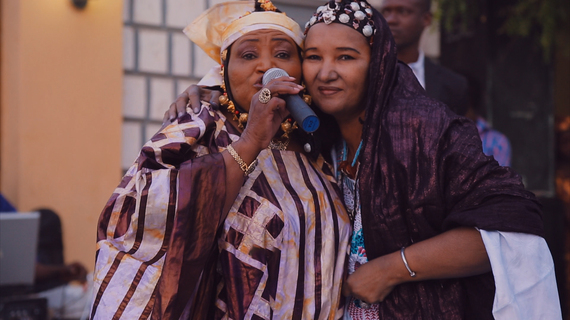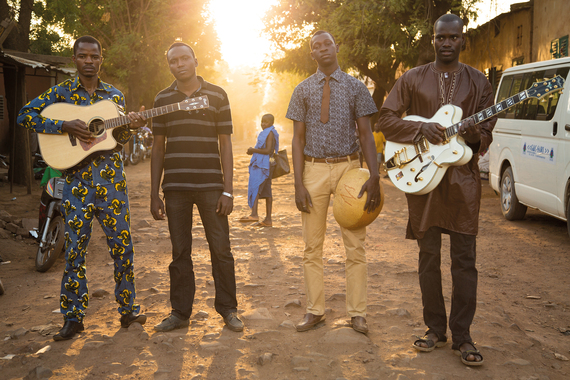Angélique Kidjo is used to being in front of the camera. After all just this past February she appeared on the Grammy stage to accept her third honor for her critically acclaimed music. But this Friday, March 18 she steps in front of the camera as a news anchor for 21ème Siècle (21st Century), a monthly magazine series co-produced by United Nations Television and TV5MONDE. Kidjo was motivated to be part of the series by her humanitarian work for over a decade as a UNICEF Goodwill Ambassador.
"What I learned as UNICEF Ambassador is one child at a time," she said. "On my first trip I saw the magnitude of what happens. It makes you want to help people all at once but you don't have that power. So you take one child at a time. You change one life and that life will change another life."
During this season of the series Kidjo hopes to illuminate the complex nuances of various stories such as the plight of migrants and refugees in Italy, the rise of teenage pregnancy in the Dominican Republic and descendants of slaves in Brazil fighting for land rights. Kidjo believes the show fills a void that mainstream media overlooks due to a focus on sensationalism.
"Every story told in the world has different sides. In this show you hear from many voices and it gives you a larger and bigger picture of a story than any other news outlet. News is not entertainment. If it becomes entertainment we take out the heart and substance of a story. Now everything has basically become entertainment across the board."
Malian musicians fight ban on music in new documentary
There's no place like home, even when home is being run by Islamic jihadists enforcing extreme interpretations of Shariah law. Such was the surprising sentiment that director Johanna Schwartz found herself exploring while shooting the documentary They Will Have to Kill Us First: Malian Music in Exile. The film--now in limited release--documents the lives of musicians in northern Mali who contend with a ban on all forms of music and the threat of torture or worse for anyone who isn't obedient.
"At some point during shooting this became a story about refugees and people fleeing hardships. But every person tried to get back home. They wanted to play with family and local musicians," said Schwartz. "That is a twist on the narrative. You don't hear much about who refugees are and where they want to go. But going back home became such a powerful idea that I want people to take away from this film."
The ban on music was instituted in 2012 and officially lifted between 2013 and 2014, according to various accounts. However for the musicians who had to hide or flee there remains a fear that extremists will once again rise in power, leaving some to operate under a self-imposed music ban. For singer Aliou Toure of Songhoy Blues (whose band is featured in the documentary) such trepidation signifies the need for further exposure and assistance on this issue.
"The Malians in the U.S. who are doing very well at some point have to bring their skills back home because they are so sorely needed," he said.
Toure is among many other brave singers and musicians who refuse to be silenced and continue to share their music. The film's soundtrack of blues, rap and soul presents several commissioned songs by these recording artists including "Petit Metier," by Songhoy Blues. Toure shared that the lyrics of the song were written while the film was being shot. For him it represents the message of resilience as being central to rebuilding efforts.
"The title means the little tasks. Basically we are saying that the war didn't stop the river from flowing or the animals and the herds from going on there business. We invite everyone to realize there is much to be done without waiting for international aid and treaties or various charities. Everyone has enough to get along and reconstruct."
****
The weekly column, On the "A" w/Souleo, covers the intersection of the arts, culture entertainment and philanthropy in Harlem and beyond and is written by Souleo, founder and president of event/media content production company Souleo Enterprises, LLC.



